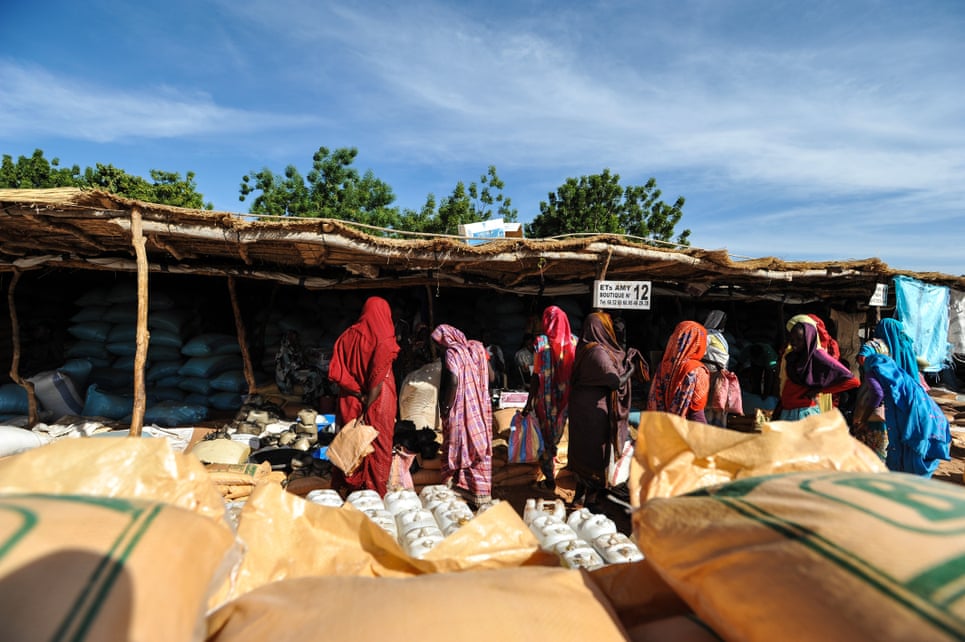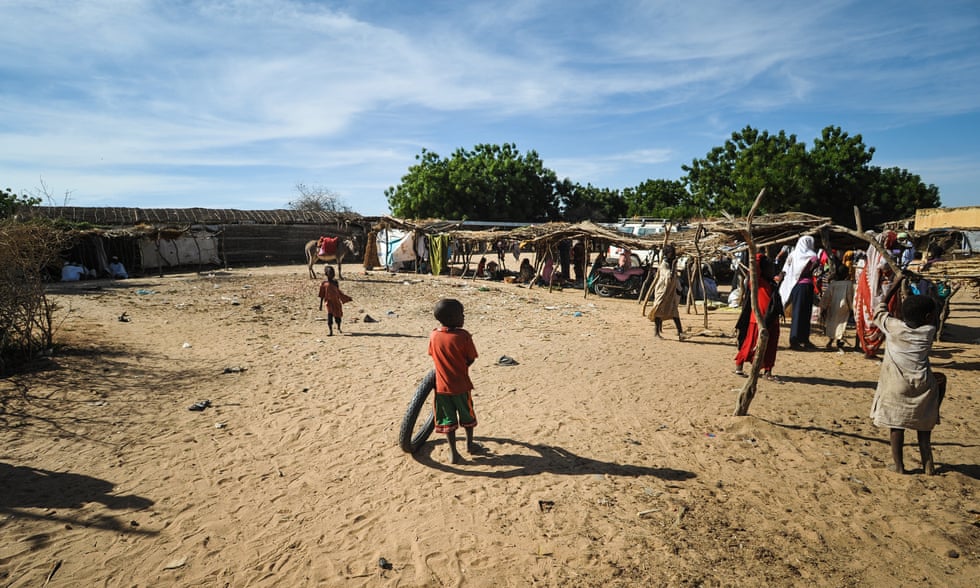Refugees from the troubled Sudanese region of Darfur, who are living in camps in neighbouring Chad, are being drawn into an African gold rush in a desperate effort to pay smugglers to get them to Europe.
Digging in holes 50m deep, Sudanese refugees are risking their lives in an area not only littered with landmines but also beset by violence, which claimed at least 25 lives last year.
Lowered by rope into the darkness below, they spend hours at a time hacking away at the hard rock by torchlight. The hope is to find a nugget of gold big enough to pay the thousands of pounds demanded by smugglers to take them through Libya and on to boats that offer the chance of a new life in Europe.
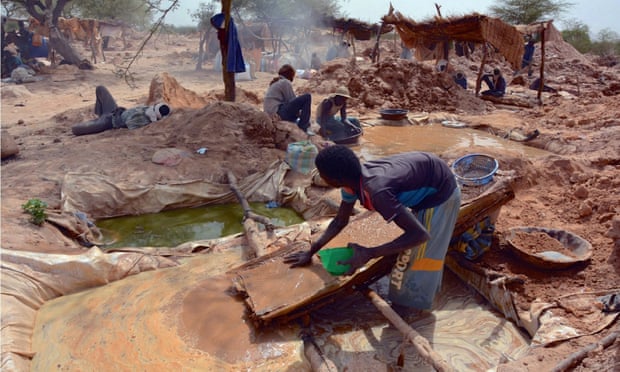
Nasrudin Omar Bahar, 29, invested his life savings of £200 to join a group heading to the gold mines of Tibesti, in Chad’s far north.
“I had the idea that I could get enough gold to go to Europe,” he says. “I didn’t care which country I went to. My dream place was somewhere where there is peace, serenity and a good living.”
But Bahar now lies on a bed in a mud hut in the Farchana refugee camp close to the border with Darfur. He fled Darfur in 2007 when the Arab militia known as the Janjaweed attacked and burned his village of Tandikoro.
Vibrations from the heavy machinery needed to crush the mined stones caused the shaft to collapse on top of him. The rockfall left him paralysed from the waist down. He explains that living conditions in the camp were what drove him to leave the settlement. “Life was very difficult and we couldn’t support ourselves … Then I heard of a group who were going looking for gold, and so I left the camp,” he says.
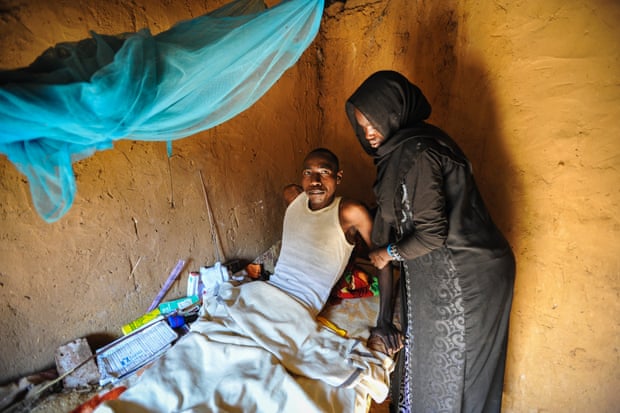
Word of the potential riches to be made in the gold fields has spread around the settlements. In Goz Beïda, Mohamed Jouma Ahamed, 41, the inspector of schools in Djabal camp, said that his brother Ahamed had joined the gold rush in the hope of making enough to buy his passage to Europe.
“Staying here isn’t easy, and so we would prefer to go to Europe,” he says. “There are many young boys who attempt to go to Europe by sea through Libya.
“They go to the region in the far north of Chad where they search for gold, and they get cash and pay smugglers to take them over to Libya. My brother went to Tibesti to search for gold and got some, and the smugglers took them in cars to Libya.”
Around 323,000 people who escaped the fighting that broke out in Darfur in 2003 live in camps on the Chadian side of the border with Sudan. Attempts to persuade them to return home have foundered amid fresh outbreaks of violence, with thousands of people fleeing over the border into Chad in recent months.
The headman of Tenbeba village in Darfur, Mahamat Khatir Idriss, 60, describes how he and about a thousand others had to flee when the Janjaweed attacked after years of rapes, beating and intimidation. “There is no negotiating with them. They came with their guns and we were prisoners in our own village,” he says. “When our children went to get food they were beaten, when the women went to get water they were assaulted. There was rape.”
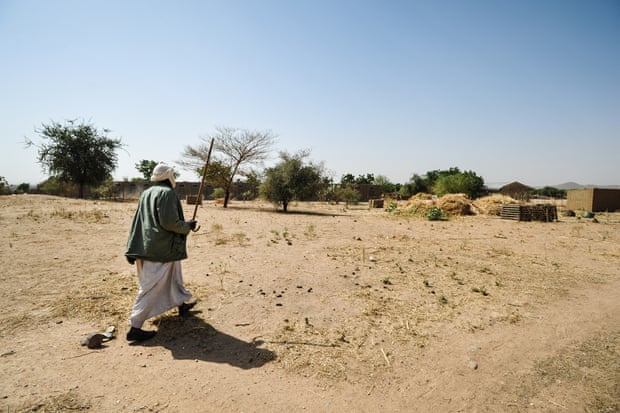
He and many of the villagers eventually reached Treguine camp in eastern Chad. He said they had been powerless to defend themselves from the Arab militia, who have been blamed for carrying out much of the violence against the black African farmers during the long-running conflict.
He accused troops from the UN-African Union Mission in Darfur (Unamid) of failing to protect civilians from attack. “Soldiers would come and take information when something happened, but they didn’t do anything.”
He says they were given phone numbers to call Unamid for assistance but claims the UN forces would not intervene to prevent attacks. “Even when we call them, they don’t come. They didn’t fight to protect the local people. They go away.”
Another of the villagers, Fatna Idriss Adam, 25, says they had been persecuted by “the Arabs”. She describes how the Janjaweed attacked the village in August, killing a policeman and setting fire to houses, forcing the villagers to flee. “Some were on foot and some were on horses. The Arabs were shooting, and three people were wounded and one was killed. I was in the fields. I heard the shooting, so I ran across the river with my baby.”
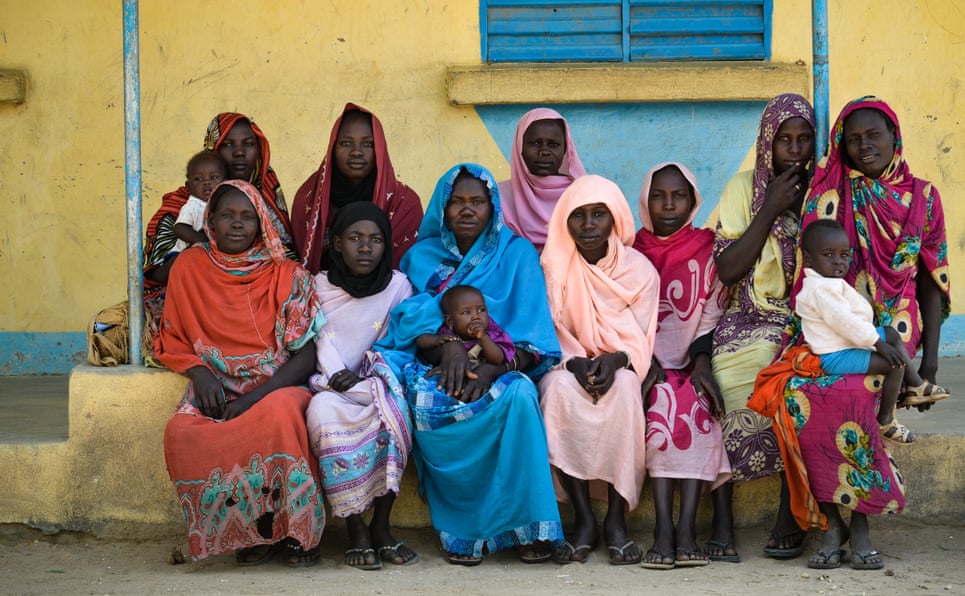
She says the trouble started when one of the Janjaweed was arrested by local police for trying to graze his cattle on a farmer’s land. The Janjaweed took revenge by killing a policeman and driving out the villagers.
The Sudanese government has been accused of exploiting traditional rivalries between the nomadic Arab herders and the settled black African farmers, arming the Janjaweed to take on rebel non-Arab groups.
“We lived with a kind of fear between the two communities,” Adam says. She and hundreds of other villagers have resolved to stay at Treguine and have started building houses on land allocated to them. “Here it is better because the Arabs will leave us in peace,” she adds.
At the height of the conflict in Darfur, between 2003 and 2005, the plight of refugees from what was described as the world’s worst humanitarian crisis was often in the international spotlight.
But now those supporting the refugee camps – including the European commission’s aid organisation, Echo – are concerned that funding is drying up. There have been attempts to persuade the refugees to return by arranging for small groups of their representatives to visit Darfur to assess the security situation.
But one of those who visited last year, Adam Ismail Abdallah, 38, says they had returned to the Djabal camp more convinced than ever that Darfur remained unsafe. “Everything was the same – the killing, rape, everything,” he says. “The Arab tribes … are living on our land, in our villages.”
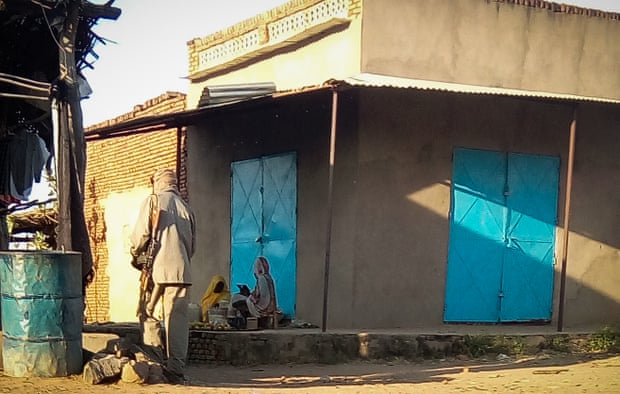
It is against this background that the discovery of gold in northern Chad has tempted some in the camps to believe there may yet be a way out of their predicament. Gold was discovered around Tibesti in 2012, and since then people have flocked to the mines from across the region.
A report published last year noted that the thousands of prospectors included refugees from Darfur. But competition is fierce and last year dozens of people died in violent clashes between miners. Others struggle to make enough to survive.
Bahar says he barely makes enough to buy food. But for him, there is a happy ending – of sorts. Despite his catastrophic injuries, his dream of reaching Europe did not die at the bottom of the mine shaft. Finland has agreed to grant him asylum and he is due to be flown out of Chad with his sister Manira at the end of the month.
- This reporting was funded by the European commission through Echo, the European civil protection and humanitarian aid operations
